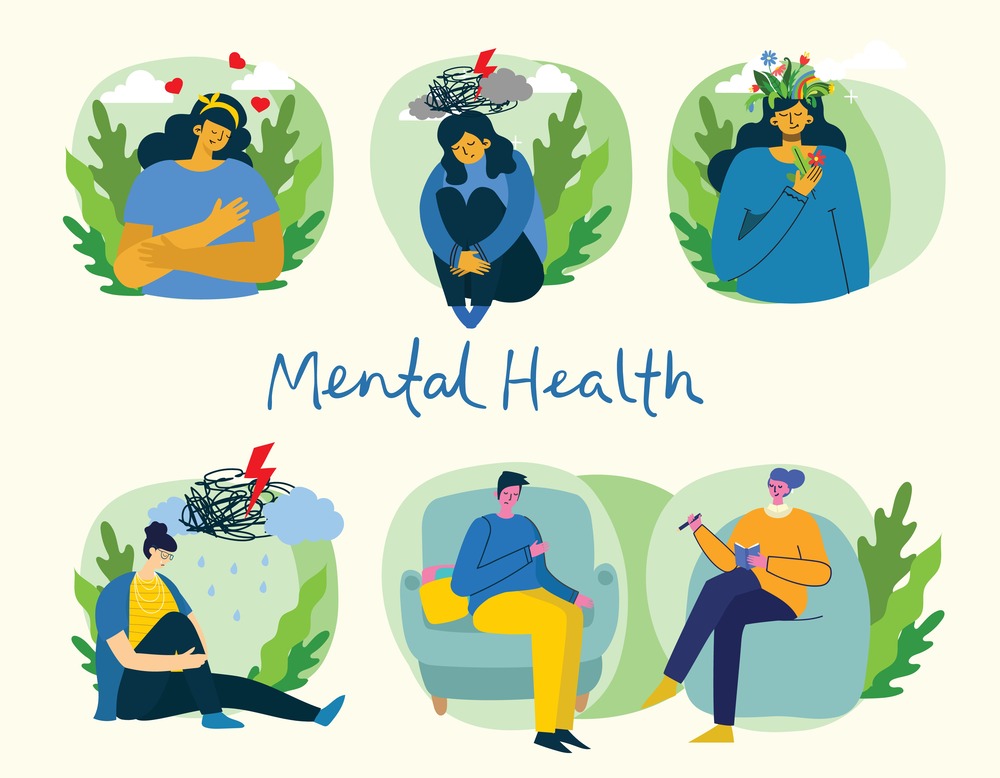10 Daily Habits to Boost Your Mental Health and Well-Being

Maintaining good mental health is essential for overall well-being. Simple daily habits can have a profound impact on reducing stress, enhancing mood, and improving emotional resilience. Here are ten practical habits you can incorporate into your routine to boost mental health and foster a positive outlook on life.
1. Start Your Day with Gratitude
Beginning your day with gratitude sets a positive tone. Take a moment each morning to reflect on three things you’re thankful for. This practice can shift your focus from problems to blessings, promoting a more optimistic mindset.
2. Stay Physically Active
Exercise is a powerful tool for mental health. Activities like walking, jogging, or yoga release endorphins—natural mood lifters that help reduce stress and anxiety. It also contributes to brain development, enhancing cognitive function and mental clarity. Aim for at least 30 minutes of movement daily to experience long-term benefits.
3. Prioritize Quality Sleep
Sleep plays a critical role in emotional regulation and cognitive function. Develop a bedtime routine to ensure 7-9 hours of restful sleep. Avoid screens before bed and create a calming environment for better rest.
4. Practice Mindfulness or Meditation
Mindfulness and meditation help you stay present and manage stress. Even dedicating five minutes a day to focus on your breathing or practice guided meditation can improve emotional stability and reduce negative thoughts.
5. Stay Connected with Loved Ones
Strong social connections are vital for mental health. Make time to call or visit friends and family. Talking about your feelings and experiences with trusted individuals can foster a sense of belonging and support.
6. Eat Nutrient-Rich Foods
What you eat affects how you feel. Incorporate foods rich in omega-3 fatty acids, antioxidants, and fiber—like salmon, berries, and whole grains—into your diet. These nutrients promote brain health and reduce the risk of mood disorders.
7. Set Achievable Goals
Break down big tasks into smaller, manageable goals. Achieving even small objectives boosts self-esteem and provides a sense of accomplishment. Celebrate your wins, no matter how minor they may seem.
8. Limit Screen Time
Excessive screen time can lead to stress and fatigue. Establish boundaries for using phones, computers, and other devices. Take breaks to rest your eyes and focus on offline activities, like reading or spending time outdoors.
9. Engage in Creative Activities
Creativity fosters mental well-being. Whether it’s painting, writing, gardening, or playing music, engaging in hobbies helps you relax and provides a productive outlet for emotions. Creativity also promotes problem-solving and mindfulness.
10. Practice Self-Compassion
Be kind to yourself, especially during difficult times. Replace self-critical thoughts with affirmations of self-worth. Remember, it’s okay to make mistakes, and taking care of yourself is not selfish but necessary for growth and healing.
Building a Sustainable Routine
The key to benefiting from these habits is consistency. Start small, incorporating one or two habits at a time, and gradually build on your routine. Over time, these practices will become second nature, enriching your mental health and overall well-being.
By prioritizing these daily habits, you can create a healthier, more balanced life that supports your mental and emotional resilience. Small, intentional changes today can lead to a brighter and more fulfilling tomorrow.
